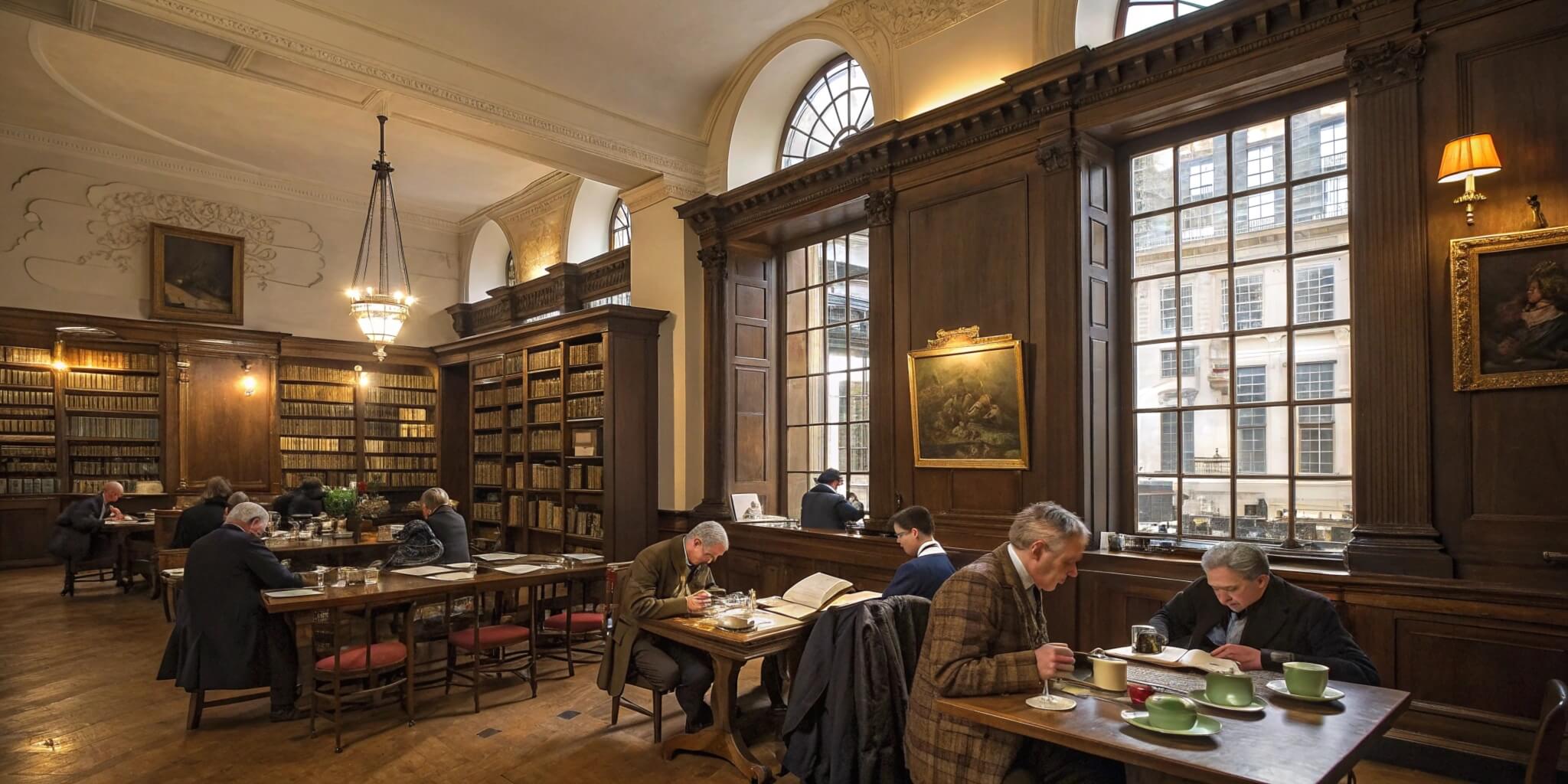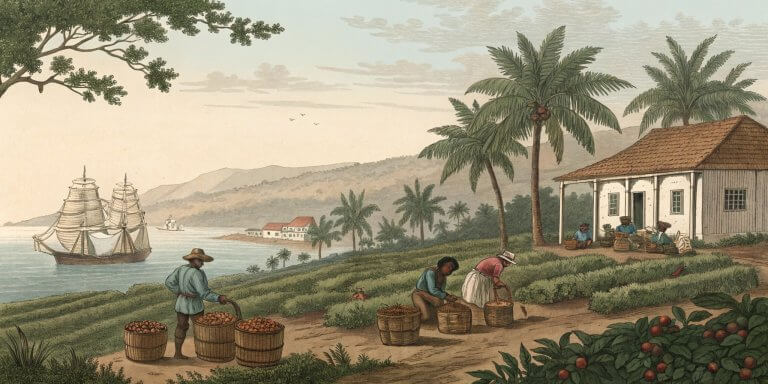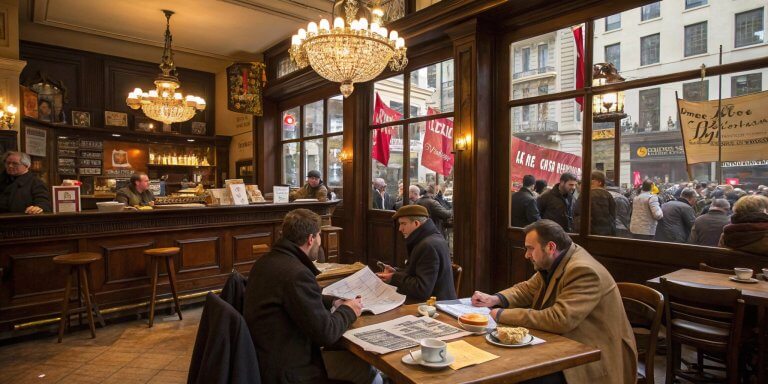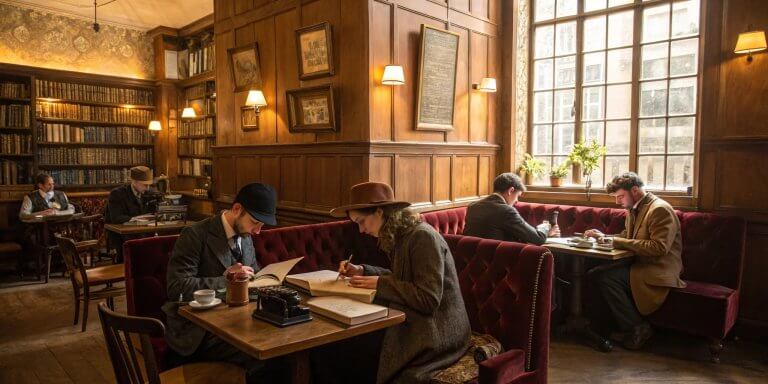
Coffeehouses during the Enlightenment were more than just places to enjoy a hot drink. They were the secret hubs where some revolutionary ideas were born and discussed. These establishments, filled with thinkers, writers, and scientists, helped shape the intellectual landscape of Europe. Coffeehouses played a crucial role in developing many modern philosophies, sciences, and political movements by fostering free and open dialogue. Here’s a closer look at why coffeehouses were so important during the Enlightenment.
The Origins of Coffeehouses in Europe
Coffee arrived in Europe from the Middle East in the early 17th century. The first coffeehouses popped up in cities like Venice, but they truly flourished in London and Oxford. The first coffeehouse in England was opened in Oxford in 1650, and these establishments quickly gained the nickname “penny universities,” a term that reflected their role as affordable and accessible centers of learning for the common people.
Anyone could enter, enjoy a cup of coffee, read the latest newspapers, and engage in lively discussions on various topics for the price of a penny.
These coffeehouses were different from taverns. They didn’t serve alcohol, so people focused on serious debates about science, philosophy, and politics instead of drunken conversations. The coffeehouse atmosphere was lively and intellectually charged, making it the perfect environment for exchanging ideas.
Coffeehouses as Centers of Rational Discourse
One of the reasons coffeehouses became so popular during the Enlightenment was their ability to stimulate rational discourse. Coffee, a non-alcoholic beverage, helped sharpen people’s minds, allowing them to focus and engage in intellectual discussions without the influence of alcohol. Before coffee arrived in Europe, people often drank beer or wine all day, even for breakfast, because water was unsafe.
Introducing coffee brought a refreshing alternative, leading to more productive and sober conversations.
The drink itself promotes intellectual engagement. Studies show that coffee can improve memory and increase focus, which might explain why coffeehouses became hubs for scientific and philosophical discussions.
As these discussions grew, coffeehouses became essential in spreading the new ideas that defined the Enlightenment.
Intellectual Exchange in Coffeehouses
Coffeehouses became vital meeting places for intellectuals and thinkers of the time. In England, figures like Isaac Newton and John Locke frequented coffeehouses, using them as places to share their ideas. The Royal Society, an important scientific institution, even held meetings in coffeehouses where members would conduct experiments and discuss groundbreaking scientific theories.
These intellectual exchanges were broader than science. Philosophers like Voltaire and Jean-Jacques Rousseau in France were coffeehouse regulars, where they debated political theories and ideas about human nature. Voltaire was famously known to drink up to 50 cups of coffee daily.
In addition to science and philosophy, coffeehouses were also crucial for literature. Writers and poets would gather in these establishments to share their work, receive feedback, and challenge traditional literary norms.
This cross-pollination of ideas across disciplines was a hallmark of the coffeehouse culture.
Political Discussions and Revolutionary Ideas
Coffeehouses didn’t just change the way people thought about science and philosophy; they also became places where revolutionary political ideas were discussed. In London, coffeehouses were often filled with discussions about the government and the monarchy, and King Charles II was so worried about the political conversations happening in these establishments that he tried to ban them in 1675. Ideas like the separation of powers and individual rights, which later became fundamental to modern democracies, were born and debated in these coffeehouses.
However, the ban lasted only 11 days because coffeehouses were too famous and crucial to the city’s intellectual life.
Across the Atlantic, coffeehouses also played a role in the American Revolution. In Boston, the Green Dragon Tavern was a popular meeting spot for the Sons of Liberty, which opposed British rule. It was in this coffeehouse that many of the plans for the Boston Tea Party were discussed.
Similarly, in France, cafés like Café Procope became gathering places for revolutionaries during the French Revolution. Discussions in these coffeehouses helped fuel the revolutionary fervor that led to significant political changes. The American and French Revolutions were not just fought on battlefields, but also in the intellectual battlegrounds of coffeehouses.
The Social Impact of Coffeehouses
One of the most exciting aspects of coffeehouses was their ability to bring together people from different social classes. Unlike other intellectual spaces exclusive to the elite, coffeehouses were open to anyone who could afford a cup of coffee. This made them melting pots of ideas where merchants, scholars, artisans, and even laborers could discuss ideas as equals, fostering a sense of inclusivity and community.
Coffeehouses’ inclusivity was one reason they became so influential during the Enlightenment. People from different backgrounds could exchange ideas, challenge each other’s opinions, and devise new solutions to the problems of the day. This egalitarian environment helped promote the values of free speech and rational thinking central to the Enlightenment.
The Influence on Literature and Art
Coffeehouses weren’t just for scientists and philosophers but also popular among writers and artists. Many literary circles formed in coffeehouses, and these gatherings often led to the creation of new literary movements. Writers like Jonathan Swift and Alexander Pope would meet in coffeehouses to discuss their work, critique each other’s writing, and explore new literary forms.
In Paris, cafés were especially important for the arts. Café culture in Paris was closely linked to the development of French literature and theater. Famous playwrights and philosophers like Voltaire and Rousseau would often gather at Café Procope, where they would discuss politics and literature, helping to shape the cultural landscape of France during the Enlightenment.
The Decline and Legacy of Coffeehouses
As the 18th century ended, traditional coffeehouses began to decline. The rise of mass media, such as newspapers and pamphlets, made it easier for people to access information without having to gather in coffeehouses. Additionally, industrialization changed work patterns, leaving people less time in coffeehouses.
However, coffeehouses‘ legacy has endured. The intellectual spirit they fostered can still be seen in modern spaces like cafés, universities, and even online forums. In today’s world, coffeehouses continue to serve as places where people gather to share ideas, work on creative projects, and engage in intellectual discussions, inspiring us with their rich intellectual history.
Conclusion
Coffeehouses during the Enlightenment were much more than just places to grab coffee. They were vibrant centers of intellectual growth where ideas flowed freely, revolutions were planned, and social barriers were broken down. These ‘penny universities’ were critical in shaping the ideas that would define modern science, politics, and philosophy, enlightening us about their historical significance. Today, their legacy lives on how we value open dialogue and the free exchange of ideas.






